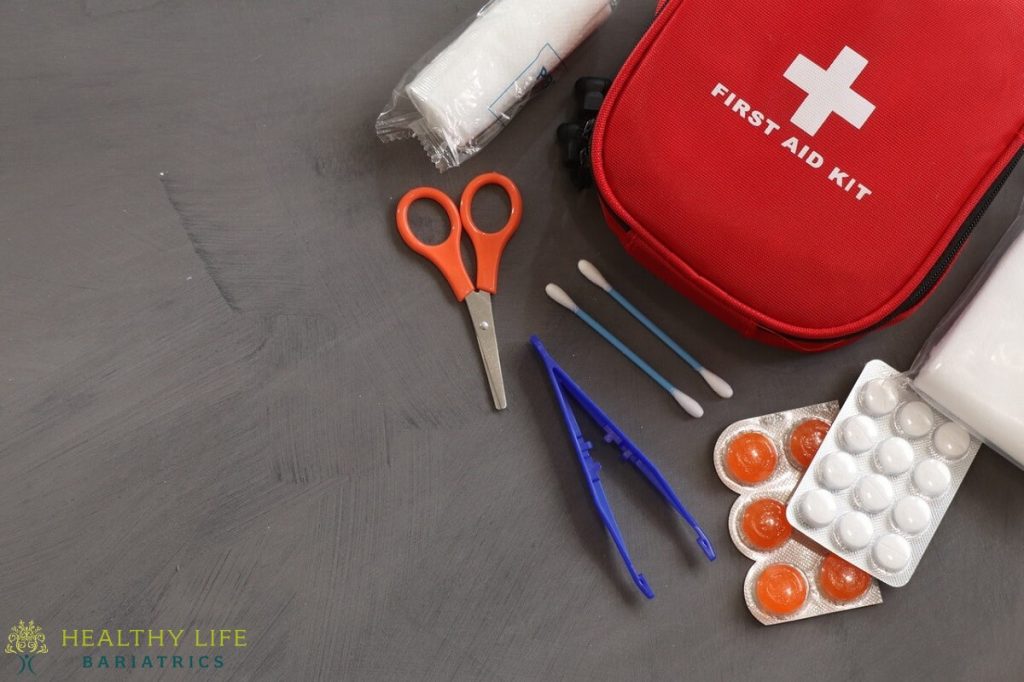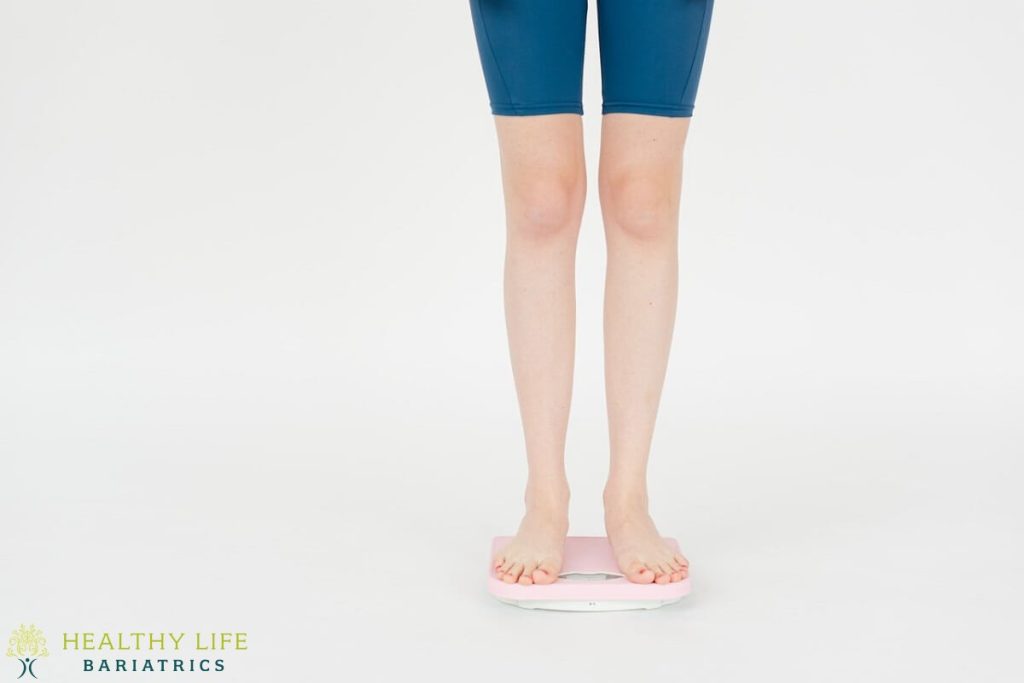
Having bariatric surgery can fill you with a mix of emotions. There is a relief that you will finally be able to fight obesity on advantageous terms with weight loss surgery . You’ll feel joy when you envision your slimmer body. And you’ll be hopeful for the future once the weight comes off because you’ll have more energy and mobility.
You may also feel a bit of anxiety. Patients often get anxious about the recovery period after bariatric surgery.
The surgery itself is nothing to worry about for most. Since general anesthesia is used most often, you will be asleep for the duration of the procedure. When you wake up, your recovery period begins.
Once recovery is over, you’ll experience the true results of your bariatric surgery, which is significant and safe weight loss.
To help you have an easier recovery time after your bariatric procedure and to speed up the time it takes to jumpstart your weight loss results, print the following list out and keep it handy. Before you know it, you’ll have a lower BMI and a narrower waist, thanks to bariatric surgery and all your arduous work.
Now, let’s get to that list.
Most patients are hospitalized for two or three days after they wake up from surgery. This allows the surgical staff to monitor your progress and keep an eye on you as you come out of anesthesia.
When you are cleared to go home, you will have a short recovery period before you return to work. Depending on your surgery, you can expect to resume your normal activities in three to five weeks.
Your bariatric surgeon will advise you on coping immediately after surgery. Your body has undergone a few changes, and your organs need time to adjust. Bariatric surgeries like the gastric sleeve and gastric bypass make your stomach smaller. The gastric bypass also reroutes your stomach to your lower intestine. These alterations to your gastric system cause you to eat less and feel less hungry overall. This means you won’t feel deprived, which will help you into your new, healthier eating habits.
Your bariatric surgeon will advise you on how and when to eat for nutrition. You will find yourself on a liquid diet for a short while, which allows your digestive system to adjust to the changes with nutrient-dense shakes that go down easily. More solid foods will then be slowly added until you return to eating regular foods.
Weight loss surgery requires you to make several lifestyle changes, including eating the right foods, consuming smaller amounts, and getting adequate amounts of exercise.
It will take earnest effort to make these lifestyle changes stick. Thankfully, you have a short bariatric surgery recovery period to work on those new habits before returning to your regularly scheduled life.
Changing ingrained habits is never easy, but it is required as a bariatric surgery patient. For significant weight loss, you should learn to eat with a focus on health. One of the most difficult aspects of changing your habit of eating healthier is knowing what to eat. For this reason, it’s recommended that you buy enough food or at least create a menu you can stick to for around five weeks after your surgery.
This will keep you from second-guessing yourself on what and how to eat. In a hungry state, you may reach for junk food without knowing which foods to reach for. Having sensible meals within an arm’s reach will give you more power to stick with your healthy habits, making them more likely to remain permanent.
A liquid diet does more than help your body ease into the new digestive changes. Your doctor also wants to reduce the amount of fat around your spleen and liver. For this reason, you would have been placed on a liquid diet for seven to fourteen days before having bariatric surgery. This diet consists of protein shakes, skim milk, sugar-free Jell-O, broth, and plain water.
For one to seven days after surgery, you’ll be placed on a similar liquid diet followed by a pureed food diet for fourteen days, a soft foods diet for up to two months, and then a solid food diet for the rest of your life.
Since recovery from bariatric surgery can take a few weeks after surgery, you should plan to have easier meals available. That will keep you from preparing meals on the fly, which you may not want to do while you’re recovering and when you’re hungry enough to reach for a riskier type of food.

After surgery, the treatment areas on your body may be bandaged. Keeping these wound areas clean and as dry as possible is important. Otherwise, the incisions that were made during the procedure can become infected.
When cleaning the area, wash the treatment site with a mild soap. You might want to avoid tub bathing or swimming until the wound has fully healed. This sometimes takes a few weeks, though your experience may vary.
You will be responsible for redressing the treatment area after showering. Talk to your doctor for personalized advice. If you have surgical staples, these will be removed around ten days following surgery unless they are dissolvable, in which case they will disappear independently.
Ensure you have surgical dressing materials and over-the-counter pain medication for discomfort. Your doctor may also prescribe medications as needed if any pain persists.
In addition to dressing and medicine, stock your first aid kit with things to keep you emotionally healthy. Things to keep on hand include a tablet for reading or watching shows and movies, books to read, and long USB cords to keep your mobile phone charged. With enough distractions, your bariatric surgery recovery period should pass by quickly.
Making sure your home is clean after surgery can boost your mood. The last thing you’ll want to do is sit in a dirty house or one where chores must be done. Do the laundry, clean the counters, and sanitize your home environment, which is critical for infection control.
While at it, pick up any area rugs and tape down electrical cords. Tripping over objects can cause you to fall, which could be dangerous for a post-op surgical patient. Leave all walkways clear and your home organized so you can find everything you need quickly.
Other ways to set up your home include ensuring your meal items are within easy reach in the fridge and pantry. Put the remote control, first aid kit, and hand sanitizer by the spot where you’ll spend most of your time. If that place is the recliner in front of the TV, you may also want a neck pillow, a grabby device in case the remote falls on the floor, and a pitcher for water.

Make the pitcher of water you keep on hand a large one so you’re not constantly refilling. Getting your adequate fill of water does several things for your recovering body. Keeping hydrated allows your body’s nutrients to travel freely to the areas of your body where they are needed most. Drinking more water boosts your mood, and getting at least eight glasses daily can supercharge your body’s natural healing ability. Your skin will also look great. Your body is made mostly of water. It makes sense that you’d need more of it to heal nicely.
As someone finally draws their line in the sand against obesity, you look forward to the day when you can fit into smaller clothes. As the weight falls off, the clothes you used to wear will become baggier and baggier until you eventually buy a whole new wardrobe.
You can anticipate that time by wearing baggier clothes during your post-bariatric surgery recovery. Loose clothing will be easier to slip on and off when you may not like doing much. Having your clothes prepared beforehand allows you to slip on what you need and go without worrying about clothing selection. Wearing loose clothing also helps you maintain good circulation, a healing aid.
After surgery, you might be flat on your back for a day or two. Your surgeon may keep you in the hospital to monitor your progress. Eventually, you will be sent home. While recovering at home, you may not feel like doing very much. However, sitting too long can harm you as a post-op bariatric patient. You need to keep your body moving to aid blood flow and keep your spirits up.
Drinking lots of water will force you to take several daily trips to the bathroom. These slight journeys from room to room can be refreshing and necessary for effective healing. In addition to your restroom breaks, try to walk around the living room or outside a bit to keep your heart rate up and your body healthy as you recover.

Recovery from bariatric surgery can cause you to focus on all the wrong things. You have a surgical treatment site that needs changing, your surgical wound may be sore, and though you feel less hungry overall, the liquid diet may be tough to manage initially.
These are all normal feelings to have as a patient of bariatric surgery. What’s important to remember is why you are in recovery, to begin with. You underwent a procedure like a gastric sleeve or gastric bypass because you had tried everything to defeat obesity but to no avail. You are finally taking control of your life by choosing to be healthy.
As such, as you are going through some of the tribulations that come with recovery, envision yourself looking in the mirror each morning and seeing consistent results as the weight falls away. Picture the new wardrobe you’ll need to buy when you shed the bulk of your excess weight. You might keep a scrapbook that includes images of clothes and vacations you want to take. Not only will you lose weight with bariatric surgery, but you’ll have more energy and mobility. Bariatric surgery patients also save money each year on health costs. You could put that saved money toward building your best life now that you’re embarking on your weight loss journey while putting obesity in your rearview mirror.
These seven tips will help your body heal efficiently during your recovery period. If you haven’t yet had surgery, there is no time like the present to start the process. If obesity seems to be ruling over your life, you can fight back by scheduling a consultation with an experienced bariatric surgeon like Dr. Babak Moeinolmolki of Healthy Life Bariatrics.
Dr. Moeinolmolki will listen to your concerns and provide compassionate support as you seek help for the disease of obesity. After a short examination, Dr. Moein can recommend surgery, whereby the process will begin.
Your journey won’t be easy, but weight loss surgery could give you a better quality of life, a healthier life, and a longer life.
Start your journey today by calling Healthy Life bariatrics in Los Angeles, Encino, and Glendale, California – (310)861-4093.
Dr. Babak Moeinolmolki
October 4, 2021